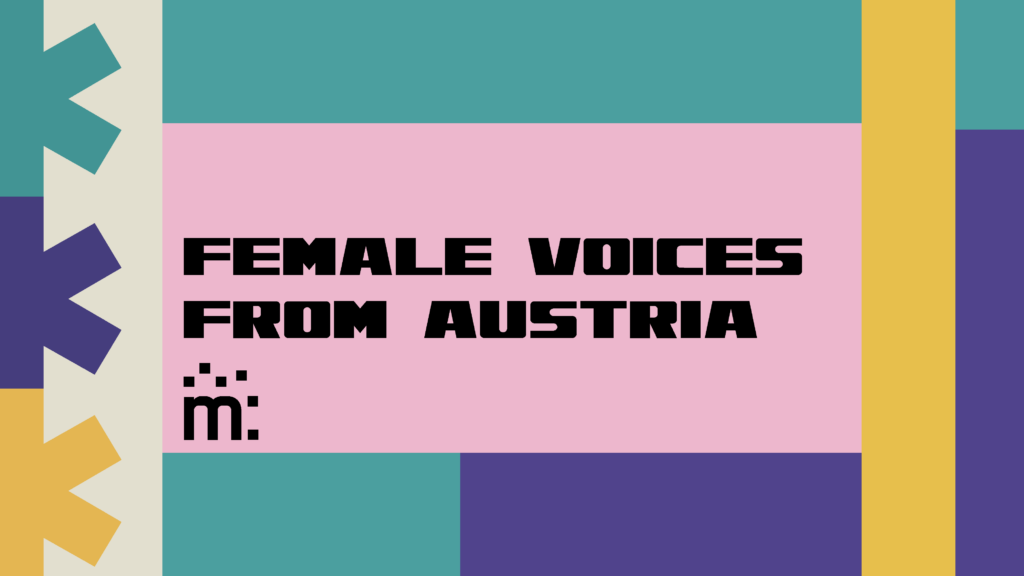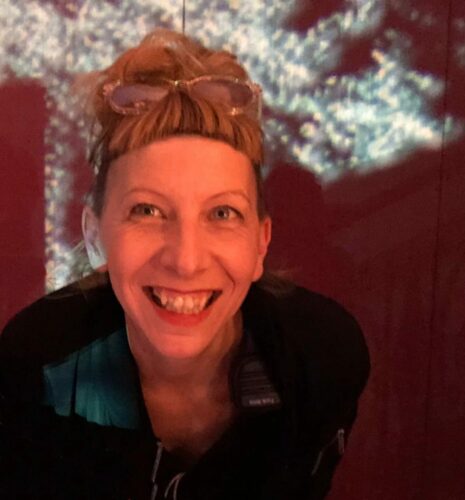On the occasion of International Women’s Day on March 8, Itta Francesca Ivellio-Vellin did a series of interviews with numerous women from Austria and talked to them about their backgrounds, feminism and the current situation in the music sector.
Karin Tonsern is one of them. She has a master in event technology, works as a production, stage and tour manager and founded her own network for women in the music industry, Sisters of Music.
What is feminism to you?
Feminism to me means balance and a fair worldview. The world population turns out to be very fair with pretty much 50% women and 50% men.
However, what is unfair is that one of these halves does not have the same rights & opportunities. Not getting the same respect, the same appreciation, the same attention. There are differences in the same education or the same pay. That women do not have the same freedoms and get the same support as the other half of the world population and that because of their gender.
“My personal approach is to draw attention to the imbalance, question it and offer solutions”
Where does the (Austrian and international) music scene need to start? What is needed?
There needs to be a structural change on all levels, in all areas, institutions, genres, etc. The music scene is too multifaceted to make one or more measures valid for everyone. By this I mean that the focus must be on the individual imbalances that exist and specific measures should be taken for each.
I am deliberately not talking about quota here, because quota is only about a balanced number of genders, but rather about balance, because this does not only include the woman/man ratio, but also fair payment, gender fair language, etc.
A measure that seems obvious to me would be, for example, that public subsidies or the awarding of contracts/tenders are tied to a balance.
Likewise, guidelines for fairer distribution / handling must be anchored in law. I do not want to wait for political change and guidelines, nor do I want to rely on them. In this respect, my personal approach is to draw attention to the imbalance, question it and offer solutions. Always with the hope that the discourse or any change, even a small one, will bring improvement in the future.
I would also like to note here that when we talk about the music scene, we should not only think about people “on and behind” the stages, but also talk about visitors who are also “forgotten” or treated unequally in very many areas (safety, gendered language, needs,…) at events.
How did you get to where you are now?
My professional career has included several stations, e.g. in the field of film or gastronomy – none of which I would like to miss in retrospect. I can still draw a lot of experience and knowledge from my previous jobs. A turning point in my professional career was the qualification as a master craftswoman in event technology and the subsequent jobs as a production manager. I was very quickly and forcefully made aware of the difficulties that can arise in pursuing a profession in a field in which hardly any women work.
It was not an easy path, as I was not always measured only by my qualifications or my abilities, but the competence of a woman in a technical and/or managerial position was often questioned. Over the years, this circumstance has always improved. The reason for this is certainly that more and more women are working in the music industry and there is more public discourse.
How much support have you received from your personal environment?
I am lucky that both my family and my circle of friends have always supported me unconditionally. In the working environment, unfortunately, competitive thinking and jealousy often dominate – both do not correspond to my ideology. Just as in a family or circle of friends, you also need people in your professional life with whom you can exchange ideas, ask for help, and who will support you in word and deed. That was my basic idea when I founded Sisters of Music. I wanted to create a network for women in the industry, where they can exchange ideas and support each other, where their own strengths but also weaknesses find room. Because every success of a colleague is a success for all of us! The network now includes over 160 women who work in technical or organizational areas or as service providers in the event industry.
Itta Francesca Ivellio-Vellin
++++
Translated from the German original by Katharina Reiffenstuhl
++++
Links:
Sisters of Music
Sisters of Music (Facebook)
Sisters of Music (Instagram)


